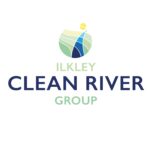HI all
Re 24th February MP Briefing (bang in the middle of Dirty Business going on air) – we are slowly getting MPs signed up. I thought you might like to see the email Kim sent to the welsh MPs for the 24th Feb MP Briefing and its worked – a really good turnout. I thought you might like to steal the approach with pride…. to encourage your MPs to come along 🙂
Dear Ben,
Please find below an invitation to a vital presentation that you should attend to demonstrate your commitment to real change for the future of our rivers, nature, biodiversity and indeed our children.
I will be there to welcome you and put it in any context for your once magnificent constituency rivers, including SAC Rivers.
Your constituency is currently listed as the worst in England and Wales for sewage CSO dumping; Wales has 5 constituencies in the top 10 worst.
With the coming elections in Wales, attending this session will demonstrate your and your party’s commitment to delivering real change for our rivers and citizens. Your role on the Welsh Affairs Select Committee brings this into even more focus.
Work in Westminster will enable the Welsh Government to fulfil its commitment to Wales Future Generations. Tinkering with the existing system, as proposed in the Welsh Green Paper, will just exacerbate Welsh rivers’ dire problems.
It’s time to stand up for our rivers. Are you and Plaid Cymru going to do it?
Invitation to MPs and Staff – Briefing on the Water White Paper, hosted by Alistair Carmichael MP, Anna Dixon MP, Clive Lewis MP.
24th February 17.15 – 18.15
Wilson Room, Portcullis House
The government has published its White Paper, A New Vision for Water, to address the crisis of water pollution and shortage, and provide a vision for the sector.
The People’s Commission on the Water Sector provided robust evidence on the solutions that could secure public value, drawing on both national and international expertise. Both EFRA and PAC have published reports relevant to this White Paper in preparation for the introduction of the Water Bill in 2026.
You are invited to attend an in-person briefing from industry experts to support your scrutiny of the White Paper and pose questions you may wish to raise during the passage of the Bill.
A short 15-minute presentation will cover:
- Who benefits and who pays. What this white paper means for the public and the environment.
- The role of the new regulator, and the impact of the White Paper in tackling the issues that you face in your constituencies.
- What is missing from the White Paper that needs government attention, and the questions MPs can ask, including lessons learnt from international examples.
- Key issues that need addressing in the Joint Transition Plan
Speakers:
- Professors Becky Malby BEM, Prof Frances Cleaver, Prof Kate Bayliss authors of Cleaner, Fairer, Cheaper – report from the People’s Commission.
- Ash Smith, The Sewage Campaign Network/ Windrush Against Sewage Pollution
- Feargal Sharkey, President of the Sewage Campaign Network
The presentation will be followed by a Q&A, bringing together grassroots campaigners, citizen scientists, and experts who have contributed to the People’s Commission’s work.
Please RSVP by responding to sarahb.clarke@parliament.uk, and kim@wru.org.uk
Prof Becky Malby
Tel: 07974777309
Bluesky: @cleanilkley.bsky.social
https://www.ilkleycleanriver.uk/
https://www.facebook.com/Ilkley-Clean-River-Group-431201944302819/


